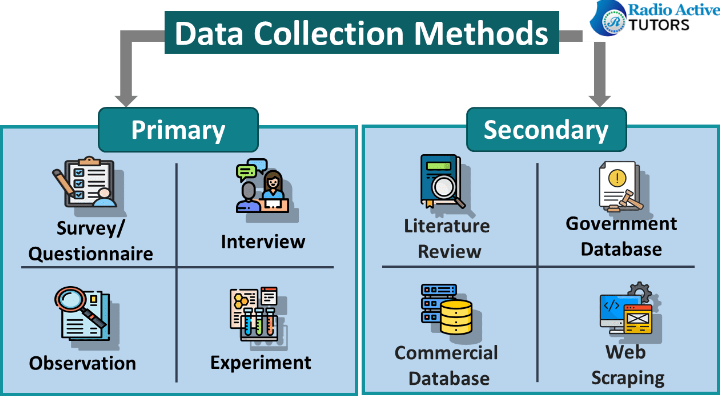I. Introduction
A. Defining the Role of Case Studies in Political Science

Political Science Case Studies play a pivotal role in the realm of political research, offering a nuanced understanding of complex political phenomena. These in-depth investigations serve as powerful tools to dissect and analyze real-world political scenarios, providing researchers with valuable insights into the intricate dynamics of government, policies, and international relations.
By delving into specific cases, political scientists can illuminate the underlying causes, effects, and implications of political events, contributing to a broader comprehension of political systems. Essentially, these case studies act as a bridge between theoretical frameworks and practical applications, allowing scholars to connect academic concepts with the ever-evolving landscape of political reality.
B. Significance of Crafting Effective Political Science Case Studies
Crafting effective Political Science Case Studies holds immense significance in the realm of political inquiry. These studies serve as crucial instruments for researchers aiming to unravel the complexities of political systems and events. By meticulously examining specific cases, scholars can unearth patterns, causation, and contextual nuances that contribute to a deeper comprehension of political phenomena.
Furthermore, effective case studies provide valuable empirical evidence, enriching theoretical frameworks with real-world applications. They offer insights into the decision-making processes of political actors, the impact of policies, and the dynamics of political institutions. In essence, the significance lies in the ability of well-crafted case studies to not only enhance academic knowledge but also inform policymakers, contributing to a more informed and nuanced approach to political analysis and decision-making.
II. Understanding Political Science Case Studies

A. Unpacking the Definition and Purpose
Understanding Political Science Case Studies involves unraveling their definition and purpose within the discipline. A Political Science Case Study can be defined as an in-depth investigation of a particular political phenomenon, event, or entity, aiming to provide a comprehensive understanding of its complexities. The purpose of such studies is multifaceted, encompassing the exploration of causal relationships, the examination of political behavior, and the analysis of the impact of policies on political structures.
Essentially, these case studies serve as a lens through which researchers can delve into the intricacies of political dynamics, bridging the gap between theory and real-world application. By unpacking the definition and purpose of Political Science Case Studies, scholars gain a foundational understanding of the essential role these studies play in advancing knowledge and contributing to a nuanced comprehension of political systems.
B. Key Elements that Constitute a Political Science Case Study
Understanding Political Science Case Studies involves recognizing the key elements that constitute these analytical inquiries. A Political Science Case Study typically comprises several essential components. First and foremost is the formulation of a well-crafted research question that guides the study's focus. The contextual background provides the necessary framework, offering insights into the broader political landscape. Methodology outlines the approach taken in data collection and analysis, ensuring rigor and reliability. Finally, data collection involves the gathering of relevant information through methods like interviews or document analysis. These elements collectively contribute to the richness of Political Science Case Studies, enabling researchers to explore, analyze, and draw meaningful conclusions about specific political phenomena or events.
III. Selecting the Perfect Topic

A. Identifying Relevant Political Issues
Selecting the perfect topic in Political Science Case Studies begins with the crucial step of identifying relevant political issues. This process involves a meticulous examination of contemporary challenges, ongoing debates, or historical events within the political landscape. The goal is to pinpoint subjects that hold significance, either due to their impact on society, policy implications, or contributions to the broader understanding of political structures.
By selecting a topic rooted in relevance, researchers ensure that their case study addresses pressing issues, contributing valuable insights to the discourse within the field of political science. This initial step lays the foundation for a meaningful and impactful exploration of the chosen subject, fostering a deeper understanding of its complexities and implications.
B. Evaluating Feasibility and Significance
Selecting the perfect topic in Political Science Case Studies involves a dual process of evaluating both feasibility and significance. Beyond identifying relevant political issues, researchers must assess whether the chosen topic is practically manageable within the constraints of available resources and time. Feasibility ensures that the research can be executed effectively.
Simultaneously, evaluating significance requires considering the broader impact of the chosen topic on the field of political science. A topic may be feasible, but it gains true value when it contributes meaningfully to existing knowledge or addresses critical gaps in understanding political phenomena. Striking a balance between feasibility and significance ensures that Political Science Case Studies are not only methodologically sound but also make substantial contributions to the discipline, enriching our understanding of complex political dynamics.
IV. Crafting a Clear Research Question

A. Articulating Questions that Drive Insight
Crafting a clear research question is a pivotal step in the process of conducting Political Science Case Studies, as it involves articulating questions that drive insight. A well-formulated research question serves as the compass, guiding the entire study towards a focused and purposeful exploration of a specific political phenomenon.
The art lies in crafting questions that not only address the chosen topic but also open avenues for in-depth analysis and interpretation. These questions should be precise, clear, and designed to uncover the complexities of political dynamics, encouraging nuanced investigation. By articulating research questions that drive insight, researchers ensure that their case studies are not only methodologically robust but also capable of yielding meaningful contributions to the broader understanding of political science.
B. Establishing Links to Existing Political Science Literature
Crafting a clear research question involves more than just formulating an inquiry; it also requires establishing links to existing Political Science literature. This step is crucial for situating the research within the broader academic discourse. By carefully reviewing and referencing relevant literature, researchers ensure that their questions align with existing knowledge, demonstrating awareness of prior studies and theoretical frameworks.
This connection not only enhances the scholarly credibility of the research but also contributes to the evolution of ideas within the field of political science. Through this deliberate alignment with existing literature, the research question becomes a dynamic part of an ongoing conversation, fostering a more nuanced and informed exploration of the chosen topic in Political Science Case Studies.
V. Conducting an In-Depth Literature Review

A. Identifying Key Theories and Concepts
Conducting an in-depth literature review in Political Science Case Studies involves a meticulous exploration aimed at identifying key theories and concepts. This crucial step serves as the intellectual groundwork, allowing researchers to situate their study within the existing body of political science scholarship. By delving into relevant literature, scholars can uncover established theories and concepts that provide a theoretical framework for their case study.
This process not only informs the research design but also enables researchers to build upon and contribute to the scholarly conversations surrounding the chosen topic. Identifying these key theories and concepts is foundational to the success of Political Science Case Studies, ensuring that the research is informed, contextually rich, and aligned with the broader theoretical landscape in political science.
B. Analyzing Previous Political Science Case Studies for Inspiration
Conducting an in-depth literature review is a pivotal stage in the research process, and in Political Science Case Studies, it involves analyzing previous case studies for inspiration. By examining past studies within the discipline, researchers gain valuable insights into methodological approaches, data analysis techniques, and effective presentation styles. This analysis serves as a source of inspiration, guiding researchers in making informed decisions about their own case study design and execution.
Additionally, studying previous political science case studies allows researchers to identify gaps in existing knowledge and refine their research questions. Through this comprehensive review, scholars not only build on the successes of their predecessors but also contribute to the continuous development of methodologies and best practices in the field of political science.
VI. Blueprinting the Case Study

A. Choosing the Right Research Design
Blueprinting the case study involves a critical decision-making process, particularly in Political Science Case Studies, where selecting the right research design is paramount. The research design serves as the blueprint, outlining the overall structure and methodology of the study. In political science, researchers must carefully consider whether a qualitative, quantitative, or mixed-methods approach is most appropriate for their research objectives.
This decision impacts data collection, analysis, and the overall validity of findings. The chosen research design should align with the specific nuances of the political phenomenon under investigation, ensuring that the study is both rigorous and capable of generating meaningful insights. Choosing the right research design is, therefore, a strategic and foundational step in crafting a successful Political Science Case Study.
B. Defining Variables and Parameters for a Targeted Approach
In blueprinting Political Science Case Studies, a crucial aspect is defining variables and parameters to establish a targeted approach. Variables represent the factors or characteristics under examination, while parameters set the boundaries for the study, ensuring a focused and specific investigation. In political science, identifying and clearly defining these variables and parameters is essential for precision and relevance.
This step helps researchers narrow down the scope of their study, ensuring that the data collected and analyzed are directly related to the research question. By establishing a targeted approach, scholars enhance the study's internal validity and contribute to the overall rigor of Political Science Case Studies, allowing for a more nuanced understanding of the political phenomena under scrutiny.
VII. Selecting the Right Cases

A. Single Case or Multiple Cases: Weighing the Options
Selecting the right cases is a pivotal decision in Political Science Case Studies, and researchers often face the choice between a single-case or multiple-case approach, prompting the need for weighing the options. A single-case study delves deeply into a specific instance, offering a comprehensive understanding of a particular political phenomenon. On the other hand, multiple-case studies involve the examination of several instances, allowing for broader comparisons and generalizations.
The decision hinges on the research question's scope and objectives, with a single-case study providing in-depth insights into a unique context, while multiple cases enable researchers to explore patterns and variations across diverse scenarios. Weighing these options is crucial, as it shapes the study's depth, breadth, and the extent to which findings can be applied beyond the specific cases under investigation in Political Science Case Studies.
B. Ensuring Representativeness in Political Science Case Studies
Selecting the right cases in Political Science Case Studies involves a critical consideration: ensuring representativeness. Representativeness ensures that the chosen cases are reflective of the broader population or phenomenon under study. This step is crucial for the external validity and generalizability of the findings.
Researchers must carefully evaluate whether the selected cases are representative of the diversity within the political context being investigated. This consideration helps avoid biases and ensures that the study's conclusions can be applied to a wider political landscape. Whether selecting individual cases or employing a comparative approach, the emphasis on representativeness is fundamental in Political Science Case Studies to enhance the study's relevance and contribute to a more comprehensive understanding of political phenomena.
VIII. Mastering Data Collection Methods

A. Unleashing the Power of Interviews and Surveys
Mastering data collection methods is a pivotal aspect of Political Science Case Studies, and one potent approach involves unleashing the power of interviews and surveys. Interviews provide researchers with the opportunity to engage directly with key stakeholders, political actors, or experts, extracting valuable qualitative insights. Surveys, on the other hand, enable the collection of quantitative data from a larger sample, offering statistical patterns and trends.
Combining these methods allows for a comprehensive and multi-dimensional understanding of the political phenomenon under investigation. Researchers must design rigorous interview protocols and surveys to ensure the reliability and validity of the data collected. Unleashing the power of interviews and surveys in Political Science Case Studies not only enriches the study with diverse perspectives but also strengthens the overall evidentiary foundation for robust analysis and interpretation.
B. Delving into Archival Research and Document Analysis
Mastering data collection methods in Political Science Case Studies involves delving into archival research and document analysis. These methods offer a valuable means of tapping into historical and contextual data, enriching the depth and authenticity of the study. Archival research involves exploring archives, repositories, and historical records to uncover primary sources relevant to the political phenomenon under investigation.
Document analysis, on the other hand, entails a meticulous examination of official documents, policy papers, speeches, or media reports. Both approaches contribute essential historical context and factual evidence, complementing other data collection methods. Researchers must employ systematic techniques to extract meaningful insights from these rich sources. Mastering archival research and document analysis in Political Science Case Studies strengthens the study's empirical foundation, providing a well-rounded perspective for comprehensive analysis and interpretation.
IX. Navigating Ethical Considerations

A. Safeguarding Confidentiality and Privacy
Navigating ethical considerations in Political Science Case Studies is paramount, and a key aspect involves safeguarding confidentiality and privacy. Researchers must prioritize the protection of participants' sensitive information, ensuring that individuals involved in the study are shielded from potential harm or unintended consequences. This commitment requires obtaining informed consent from participants, clearly outlining the purpose of the study, the nature of their involvement, and how their data will be used.
Additionally, researchers should implement robust confidentiality measures, such as anonymizing data and securely storing information. By prioritizing the ethical principle of confidentiality and privacy, Political Science Case Studies not only adhere to ethical guidelines but also establish trust with participants, contributing to the integrity and credibility of the research.
B. Securing Informed Consent in Political Science Research
Navigating ethical considerations in Political Science Case Studies entails a fundamental commitment to securing informed consent in political science research. Obtaining informed consent is an ethical imperative that involves transparently informing participants about the study's purpose, procedures, potential risks, and benefits.
In the context of political science research, this process is essential for ensuring that individuals willingly and knowingly participate in the study, fully understanding the implications of their involvement. Researchers must provide a clear and accessible explanation of the research, allowing participants to make informed decisions about their participation. This ethical practice not only upholds the rights and autonomy of individuals but also fosters a foundation of trust between researchers and participants in Political Science Case Studies.
X. Decoding Data Analysis

A. The Dance of Qualitative vs. Quantitative Analysis
Decoding data analysis in Political Science Case Studies involves understanding the intricate dance between qualitative and quantitative analysis. Qualitative analysis delves into the richness of textual or narrative data, capturing the nuances, meanings, and contextual intricacies of political phenomena. On the other hand, quantitative analysis employs statistical methods to analyze numerical data, revealing patterns, correlations, and trends within a larger sample.
The synergy of these two approaches allows researchers to triangulate findings, providing a more comprehensive and robust understanding of the political context under investigation. Deciding when to utilize qualitative or quantitative methods depends on the research question, available data, and the desired depth of analysis. This dynamic interplay between qualitative and quantitative analysis is a hallmark of effective data analysis in Political Science Case Studies, offering a holistic and nuanced perspective on complex political phenomena.
B. Unraveling Patterns and Themes in Political Science Data
Decoding data analysis in Political Science Case Studies involves the essential process of unraveling patterns and themes in political science data. Through careful examination, researchers can identify recurring trends, correlations, and thematic elements within the collected data. This phase often involves qualitative analysis techniques such as content analysis or thematic coding, allowing for a nuanced exploration of the underlying patterns in the political context under study.
Unraveling these patterns and themes contributes to the development of meaningful narratives and insights, enhancing the overall depth and interpretative richness of the case study. This analytical step is crucial for distilling key findings and presenting a cohesive understanding of the political phenomena, ultimately strengthening the credibility and impact of Political Science Case Studies.
XI. Crafting Conclusions
A. Summarizing Findings with Precision
Crafting conclusions in Political Science Case Studies involves the critical task of summarizing findings with precision. In this phase, researchers synthesize the key insights gleaned from the study, distilling complex analyses into clear and concise statements. The goal is to offer a comprehensive yet focused summary that directly addresses the research question.
This process requires a meticulous review of the data, patterns, and themes identified throughout the study. By presenting a precise summary of the findings, researchers contribute to the study's coherence and ensure that the conclusions align closely with the research objectives. Crafting conclusions with precision in Political Science Case Studies is not only an essential step for academic rigor but also facilitates the communication of valuable insights to both scholarly and broader audiences.
B. Establishing the Link Between Results and the Initial Research Question
Crafting conclusions in Political Science Case Studies involves a crucial step: establishing the link between the results and the initial research question. This process requires a clear and direct alignment of the study's findings with the original research objectives.
Researchers must demonstrate how the data collected, patterns identified, and themes uncovered directly address and contribute to answering the research question posed at the beginning of the study. By establishing this link, conclusions become a coherent narrative that validates the study's purpose and relevance. This alignment not only reinforces the study's academic integrity but also provides a conclusive and insightful response to the initial inquiry, offering a meaningful contribution to the broader field of political science.
XII. The Art of Writing a Compelling Case Study

A. Structuring and Formatting for Maximum Impact
The art of writing compelling Political Science Case Studies involves a strategic focus on structuring and formatting for maximum impact. Crafting a well-organized and formatted document is essential to effectively convey the research findings. Researchers should consider a clear and logical structure that includes sections such as an introduction, literature review, methodology, findings, discussion, and conclusion. Within each section, concise and coherent paragraphs contribute to readability.
Additionally, visuals such as charts or graphs can be strategically employed to enhance understanding. Paying attention to language clarity, maintaining an academic tone, and adhering to citation guidelines further refine the overall impact. By mastering the art of structuring and formatting, Political Science Case Studies not only communicate findings effectively but also enhance the study's accessibility and influence within the academic and policy communities.
B. Crafting Engaging Introductions and Conclusions
The art of writing compelling Political Science Case Studies lies in the meticulous craft of crafting engaging introductions and conclusions. A compelling introduction serves as the gateway to the study, drawing readers in with a captivating hook, clearly presenting the research question's significance, and providing a roadmap for what follows.
On the other hand, crafting an impactful conclusion involves summarizing key findings, emphasizing their relevance to the research question, and offering broader implications. By mastering the art of creating introductions that pique interest and conclusions that resonate, Political Science Case Studies can effectively communicate their significance, leaving a lasting impact on readers and contributing meaningfully to the discourse in political science.
XIII. Seeking Peer Review and Constructive Feedback

A. Leveraging Colleague and Expert Insights
Seeking peer review and constructive feedback in Political Science Case Studies is a fundamental step toward refining and enhancing research quality. By leveraging the insights of colleagues and experts, researchers open their work to valuable perspectives that can identify strengths, weaknesses, and areas for improvement.
This collaborative approach ensures a thorough and objective evaluation of the study's methodology, analysis, and conclusions. Peer review not only validates the study's credibility within the academic community but also contributes to the overall robustness of Political Science Case Studies by incorporating diverse viewpoints and expertise. Embracing feedback is an essential part of the research process, fostering continuous improvement and the advancement of scholarly contributions in the field of political science.
B. Incorporating Criticism for a Robust Political Science Case Study
Seeking peer review and constructive feedback in Political Science Case Studies is a pivotal practice for cultivating a robust and credible study. By actively incorporating constructive criticism from peers and experts, researchers fortify the methodological and analytical foundations of their work.
The input from colleagues provides a fresh perspective, helping identify potential biases, methodological gaps, or overlooked dimensions within the study. This collaborative scrutiny not only ensures the academic integrity of Political Science Case Studies but also contributes to the overall advancement of research methodologies and insights in the field. Embracing constructive feedback becomes an integral part of refining and strengthening the study, ultimately enhancing its contribution to the broader landscape of political science research.
XIV. Common Pitfalls and How to Avoid Them

A. Guarding Against Overgeneralization
In Political Science Case Studies, a common pitfall that researchers must be vigilant against is overgeneralization. This occurs when findings from a specific case are applied universally to broader contexts without sufficient evidence or consideration of variability. To avoid this pitfall, researchers should emphasize the specificity and uniqueness of their case, recognizing its limitations in representing all political scenarios.
It's crucial to acknowledge the nuances of the studied context and refrain from making sweeping generalizations that may not hold true in different political settings. By maintaining a cautious approach and focusing on the intricacies of the specific case under examination, researchers can ensure the validity and reliability of their findings in Political Science Case Studies.
B. Mitigating Confirmation Bias in Political Science Research
Mitigating confirmation bias is a critical consideration in Political Science Case Studies to avoid a common pitfall in research. Confirmation bias occurs when researchers unintentionally seek or interpret information in a way that aligns with their preconceived beliefs or hypotheses. To counteract this, it is crucial to approach the study with an open mind, allowing the data to guide the analysis rather than confirming pre-existing assumptions.
Researchers should actively seek diverse perspectives, consider alternative explanations, and involve colleagues in peer review to challenge potential biases. By consciously addressing confirmation bias, Political Science Case Studies can maintain objectivity, strengthen the validity of their findings, and contribute more robustly to the advancement of political science research.
XV. Showcasing Exemplary Political Science Case Studies
A. Spotlight on Successful Cases
Showcasing exemplary Political Science Case Studies involves shedding light on successful cases that have made significant contributions to the field. By spotlighting these cases, researchers and academics can draw attention to innovative methodologies, insightful analyses, and impactful findings. These successful cases serve as benchmarks, providing inspiration and guidance for aspiring researchers in political science.
Whether it's a groundbreaking methodology, a novel approach to a research question, or an influential contribution to policy discussions, highlighting successful cases helps advance the collective understanding of political phenomena. By shining a spotlight on these exemplary Political Science Case Studies, the academic community can learn from past successes and continue to elevate the quality and impact of research in the field.
B. Extracting Lessons from Notable Political Science Case Studies\
Showcasing exemplary Political Science Case Studies involves extracting valuable lessons from notable examples that have significantly impacted the field. By closely examining these influential case studies, researchers and scholars can uncover innovative methodologies, effective research designs, and compelling analytical frameworks.
Extracting lessons from these cases provides a roadmap for aspiring researchers, guiding them in designing and conducting high-quality studies. It also fosters a culture of continuous improvement within the field of political science, encouraging scholars to build on the successes of their predecessors. By highlighting and learning from notable Political Science Case Studies, the academic community can collectively advance the rigor and relevance of research in political science.
XVI. Gazing into the Future: Trends in Political Science Case Studies

A. Emerging Methodologies and Approaches
Gazing into the future of Political Science Case Studies involves anticipating emerging methodologies and approaches that will shape the discipline. As technology and research methodologies evolve, political scientists are likely to incorporate innovative techniques such as advanced data analytics, machine learning, and interdisciplinary collaborations. These emerging methodologies hold the potential to offer new perspectives and deeper insights into complex political phenomena.
Additionally, the integration of qualitative and quantitative methods, along with a focus on mixed-methods research, is expected to become more prevalent, fostering a more comprehensive understanding of political dynamics. By staying attuned to these trends, political scientists can embrace cutting-edge approaches, enriching the landscape of Political Science Case Studies and ensuring the field's continued growth and relevance in addressing contemporary political challenges.
B. Technological Advances Shaping the Future of Political Science Research
Gazing into the future of Political Science Case Studies reveals a transformative landscape shaped by technological advances. The integration of advanced technologies is poised to revolutionize political science research methodologies. Artificial intelligence, machine learning algorithms, and big data analytics are expected to play an increasingly prominent role, allowing researchers to analyze vast datasets, identify patterns, and draw insights that were once challenging to uncover.
Digital tools and platforms for data collection, such as online surveys and social media analysis, are likely to become more sophisticated, providing researchers with innovative ways to access and understand political phenomena. As technology continues to evolve, Political Science Case Studies are positioned to benefit from these advancements, fostering more nuanced, data-driven, and technologically sophisticated approaches to studying the complexities of political systems.
XVII. Conclusion
A. Recapitulation of Key Steps in Crafting Political Science Case Studies
In conclusion, this guide serves as a comprehensive resource for crafting effective Political Science Case Studies. It systematically outlines key steps, from selecting a relevant topic and formulating a clear research question to navigating ethical considerations and mastering diverse data collection methods. Emphasizing the art of writing compelling case studies, the guide underscores the importance of engaging introductions and conclusions.
It also highlights potential pitfalls, advocating for vigilance against overgeneralization and confirmation bias, while encouraging the invaluable practice of seeking peer review. By recapitulating these essential steps, the guide aims to equip researchers with the tools and insights necessary for conducting impactful and methodologically sound Political Science Case Studies.
